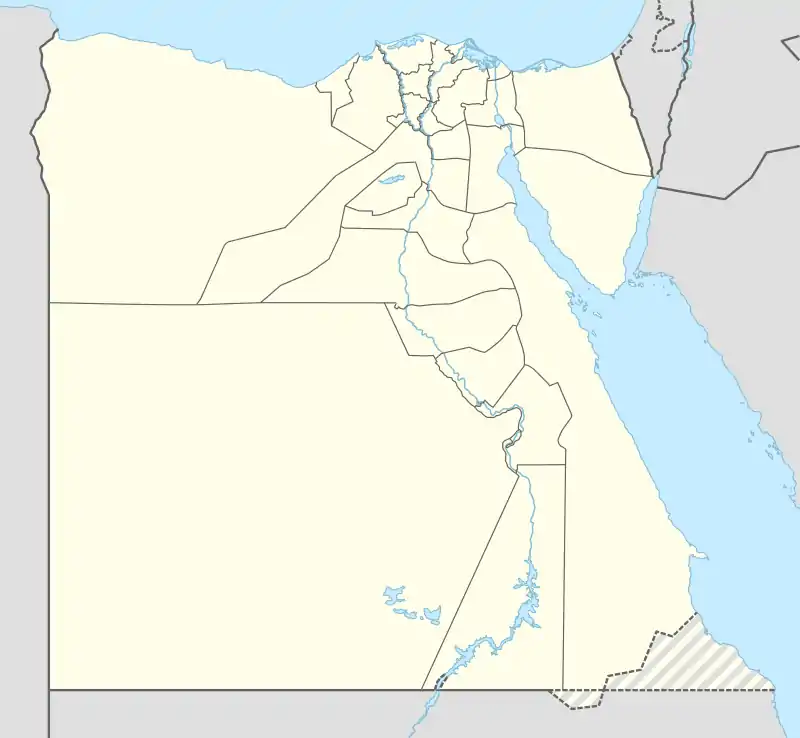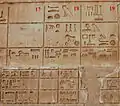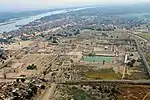White Chapel
The White Chapel of pharaoh Senusret I, also referred to as the Jubilee Chapel of Senusret I, was built during the Middle Kingdom of Egypt. During the New Kingdom it was demolished and used as filler for the Third Pylon of the temple of Karnak, Precinct of Amun-Re.[2]
| White Chapel of Senosret I | |
|---|---|
 Northern facade of the White Chapel | |
| Built | 1971 BCE to 1926 BCE (Senusret)[1] |
| Demolished | 1390 BCE to 1352 BCE (Amenhotep III)[1] |
 Open Air Museum, Karnak Temple | |
In 1927, the dismantled pieces were found inside the Third Pylon of the main temple, constructed in the time of Amenhotep III, at Karnak, and between 1927 and 1930 all of the pieces were carefully removed. These pieces were then assembled into the building that is seen today in the Karnak Open Air Museum.[3]
The White Chapel is made of limestone. Its columns hold reliefs of a very high quality, which are hardly seen elsewhere at Karnak, and depicts Pharaoh Senusret being crowned and embraced by Amun, Horus, Min and Ptah.
All along the base of the outer walls runs a series of reliefs depicting the emblems and deities of the nomes, or provinces, of Egypt. On the western side are the nomes of Upper Egypt, and on the eastern side are the nomes of Lower Egypt.
Images on the White Chapel
 White chapel reliefs
White chapel reliefs White chapel reliefs
White chapel reliefs Nomes shown on the White chapel
Nomes shown on the White chapel
References
- "White Chapel of Senusret I". Madain Project. Retrieved 21 May 2020.
- Blyth, Elizabeth (2006). Karnak: Evolution of a Temple. London: Routledge. p. 15.
- Lacau & Chevrier 1969
- Lacau, P &, Chevrier, H. (1969). Une Chapelle de Sesostris 1er. Service des Antiquities, Cairo.
{{cite book}}: CS1 maint: multiple names: authors list (link) - Arnaudiès, Alain; Beaux, Nathalie; Chéné, Antoine (2015). Une chapelle de Sésostris Ier à Karnak. Paris: Soleb. ISBN 9782918157236.
